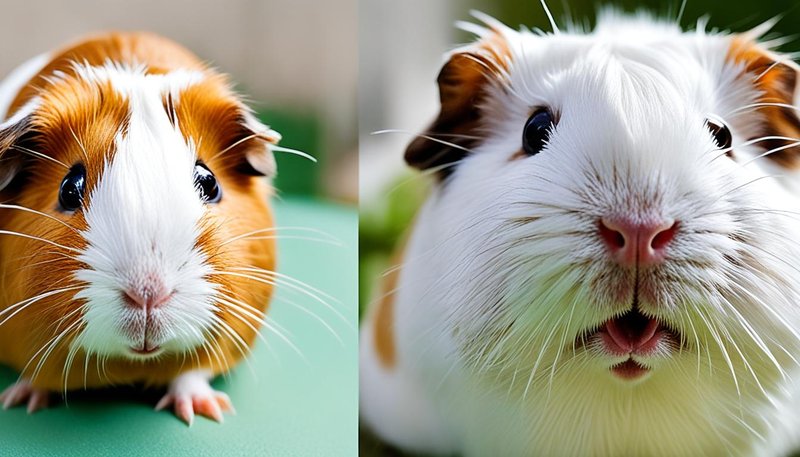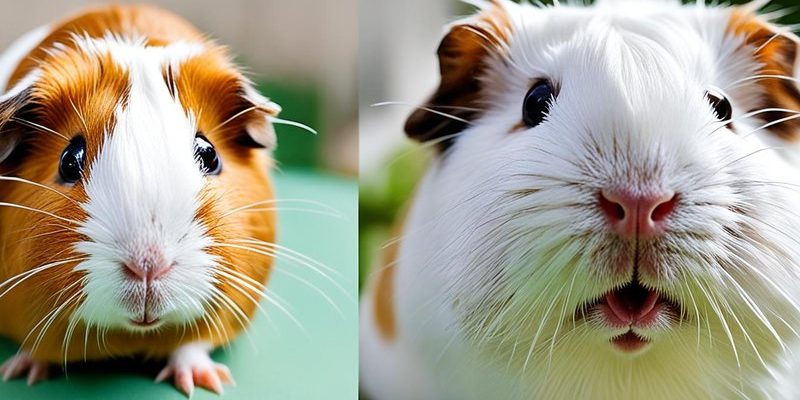
Silkie guinea pigs are known for their glorious, long hair that can be as silky as its name suggests. Despite their stunning looks, they aren’t immune to health issues. In fact, their unique characteristics can sometimes lead to specific challenges. If you’re a new owner or thinking about adopting one, it’s essential to understand these common health concerns and how to prevent them. Let’s dive into the most frequent problems and their solutions.
Understanding the Basics of Silkie Guinea Pig Health
Before we jump into the specific health concerns, it’s helpful to have a solid grasp on what makes Silkie guinea pigs unique. These pets hail from the same family as other guinea pigs but boast a distinctive coat that requires special attention. Their long, flowing hair is a beautiful feature, but it can collect dirt and debris more easily than shorter fur.
You might be wondering: How does this affect their health? Well, if you don’t keep up with grooming, they can develop skin problems and become uncomfortable. Regularly checking their fur and skin is crucial for preventing health issues. Think of it like keeping a garden tidy; if you don’t remove the weeds, they can choke the life out of the plants.
Dental Issues: A Common Concern
Dental problems are one of the most common health concerns in Silkie guinea pigs. Just like humans, guinea pigs need to maintain their teeth to stay healthy. The key thing to remember is that their teeth continuously grow. If they don’t wear them down properly, overgrown teeth can lead to pain and difficulty eating.
Signs of dental issues include drooling, difficulty chewing, or visible tooth misalignment. Regularly providing them with hay and special chew toys can help keep their teeth in check. It’s kind of like giving a child crunchy snacks to help clean their teeth—natural food choices play a significant role in their oral health.
To prevent dental issues, keep an eye on their eating habits. If they suddenly stop munching on their favorite treat, it’s time to consult a vet. Early intervention is key to avoiding more serious problems.
Skin Problems: Keeping It Smooth
Silkie guinea pigs can also be prone to skin issues, such as fungal infections and mites. Because their hair is longer, it tends to trap moisture, which can lead to skin infections if not properly managed. Regular grooming wipes away dirt and allows you to check for any early signs of skin problems.
You might wonder, “How often should I groom my Silkie?” Ideally, you should brush their fur at least two to three times a week. This helps prevent tangles that can irritate their skin. If you notice anything unusual, like redness or excessive scratching, don’t hesitate to reach out to your veterinarian.
In addition to grooming, ensure your guinea pig has a clean living environment. Dirty cages can contribute to skin problems by creating an unhealthy habitat. A clean home equals a happy Silkie!
Weight Management: The Importance of Diet
Maintaining a healthy weight is crucial for your Silkie guinea pig’s overall well-being. Obesity can lead to serious health issues, such as heart disease and arthritis. You might not think of a small animal as having weight issues, but it’s surprisingly easy for them to gain extra pounds in a short time.
So, what can you do to keep your Silkie in shape? Start with a balanced diet. Fresh hay, high-quality pellets, and plenty of fresh vegetables are a great foundation. Just remember to limit sugary treats! Introducing fiber-rich foods will help keep their digestive system in check and promote a healthy weight.
Regular exercise is just as vital. Make sure your guinea pig has enough space to roam and play. Think of it as a mini gym for them! Providing tunnels, ramps, and toys will encourage them to move around and stay active.
Respiratory Issues: Keep an Eye Out
Respiratory problems can also plague Silkie guinea pigs, particularly if they are exposed to poor living conditions or drafts. Signs of respiratory issues include sneezing, coughing, or wheezing. If you notice any of these symptoms, it’s important to act quickly.
Creating a comfortable environment is key to preventing respiratory problems. Make sure their living space is well-ventilated but not drafty. Avoid bedding that contains dust, as it can irritate their lungs. Opt for paper-based bedding instead of straw or wood shavings.
Additionally, maintain a consistent temperature in their habitat. Sudden changes can stress them out and contribute to respiratory problems. Just like we feel better in a cozy room, your guinea pig will thrive in a stable environment.
Common Digestive Problems: Watch Their Diet
Silkie guinea pigs can be prone to digestive issues, such as diarrhea or bloating. Their gastrointestinal tract is sensitive, and any sudden changes in diet can disrupt it. It’s essential to introduce new foods gradually, just like you would for a child trying out a new dish.
One common culprit for stomach issues is a lack of fiber. Ensure your guinea pig has constant access to fresh hay. This is crucial for maintaining a healthy gut and aiding digestion. Fresh vegetables are also great, but feed them in moderation to avoid overwhelming their system.
If your guinea pig does show signs of digestive distress, like bloating or lack of appetite, it’s crucial to consult a vet. They can provide the best advice and treatment options to get your furry friend back on track.
The Importance of Regular Vet Checkups
Finally, regular veterinary checkups are essential for your Silkie guinea pig’s health. Just like we go to the doctor for annual checkups, your pet needs the same care. A vet can help you catch potential issues before they become serious problems.
During these visits, the vet will check for common health concerns like teeth, skin, and overall wellness. They can also provide guidance on diet, exercise, and any specific needs your Silkie may have based on their individual health status.
Let’s face it—being proactive about your pet’s health can save you a lot of stress and heartache in the long run. Plus, regular vet visits are a great opportunity to ask questions and learn more about how to care for your beloved guinea pig.
In conclusion, Silkie guinea pigs can be delightful companions, but they do require attentive care. By staying informed about their common health concerns and implementing preventive measures, you can ensure that your furry friend enjoys a long, happy life with you. Remember, a little extra effort goes a long way in keeping them healthy and thriving!

